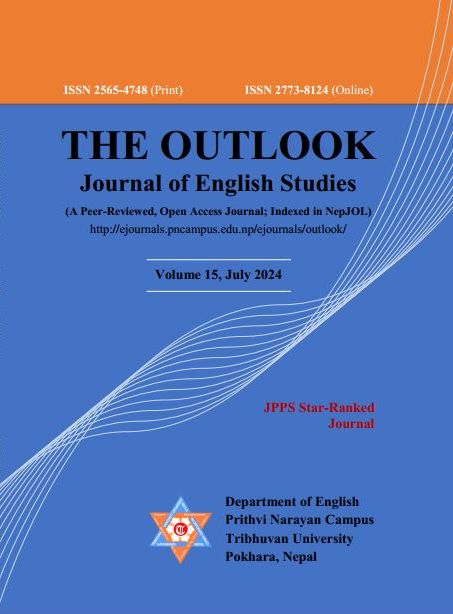The Role of Language in Emotions: A Pragmatic Analysis of the Naked Man’s Utterances during the Naira Scarcity in a Banking Hall in Nigeria
DOI:
https://doi.org/10.3126/ojes.v15i1.67773Keywords:
Pragmatics, speech act theory, illocutionary acts, naira scarcityAbstract
The unique socio-economic contexts known as trendy speech events take place especially in commercial banking halls as the result of a tensed political situation in Nigeria. Against this backdrop, this paper focuses on the use of speech act theory in pragmatics by a naked man to explicate the various illocutionary acts of the data for this study. The data comprises 45 sentences of the viral video used for this analysis. The mixed method design was adopted for this study. The qualitative method accounted for the content and the textual analyses, while the quantitative method was used for the percentile findings. The purposive random sampling technique was used to select utterances for this study to avoid redundancy and tautology typical of many spoken discourses. With the analysis of selected utterances using the speech act theory by J.R Searle, the findings revealed the speech acts express anger and frustration, they also assert, tell, describe, inform, remind, command, and make a request. Thus, the findings of the study recommended that linguistic communication should be carefully and appropriately done because the language use expresses more actions, emotions as well as intentions than what is actually expressed. Furthermore, the assertive showed that the speech acts of language users are capable of defining their different hidden emotions, personalities, and other intentions in different communicative contexts. This study is important as it unveils the understanding of communication in crisis situations, that is, how people communicate under stress and reveals how cultural and social factors influence communication styles.
Downloads
Downloads
Published
How to Cite
Issue
Section
License

This work is licensed under a Creative Commons Attribution-NonCommercial 4.0 International License.
This license enables reusers to distribute, remix, adapt, and build upon the material in any medium or format for noncommercial purposes only, and only so long as attribution is given to the creator.

